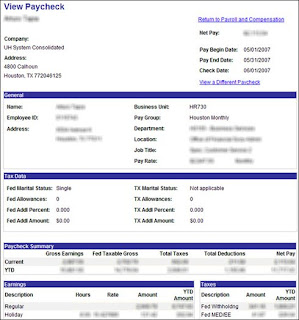 I had an exchange with a reporter last week. She asked me for advice on how employers can proactively help employees through these times.
I had an exchange with a reporter last week. She asked me for advice on how employers can proactively help employees through these times.Here's my response:
- Don’t panic. It is way too easy to make rash, and then regrettable decisions (for example, immediate layoffs).
- Get clarity. Get away from the office, re-visit your business plan, and then decide what makes the most sense for your company – not just now, but in a 2-3 year plan. For example, terminating your highest paid employee would lower immediate expenses, but how expensive will it be to replace that employee in the future, when the economy rebounds?
- Determine the amount of disclosure, and err on the side of too much information to employees. Employees are just as nervous as employers – and the uncertainty about their employer (and their careers) exacerbates their fears. Employees want and need to be informed and what the situation is in their company. Employees are normally just as invested in the success of their company as the business owner is.
- Conduct team meetings and be honest. Get feedback, solicit ideas for expense reduction, or ways to increase revenue, and make this process a collaborative effort. Business owners are normally surprised by the sophistication of such responses. And they are also surprised at what comforts employees are willing to surrender in order to keep the business viable.
- Acknowledge employees' fear. No one knows what's going to happen.
- Keep an eye open for employees who appear especially troubled, and make sure to engage them. This often can assist in preventing potential violence in the workplace (although almost all statistics show that workplace violence is instigated by a relative of an employee).
- Finally, show you’re in charge. Leadership (and resulting confidence by employees) comes from the top. Your employees respond to your emotions and words – and that is magnified to such an extent that employees sense even your subtle mood swings. Showing panic or a dark side is the worst thing an employer can do. Be as positive as possible.













